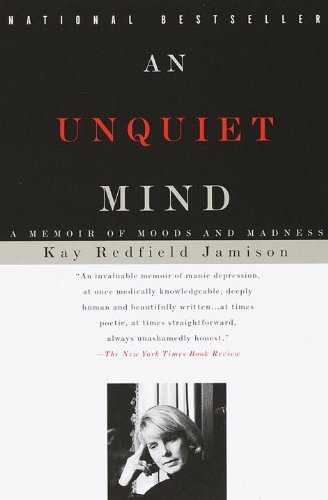One in four people will be affected by mental illness this year. Those conditions and their effects are as real as a broken arm, but without the cast to show for it. Yet, attitudes base on ignorance and prejudice can still make life for a person with a mental illness much harder.
Here are some links to videos, organizations, books, and articles that can help people learn about mental illness and stigma.
Videos
Helping Someone with Mental Illness
In this video six people share the simple things that made a difference for them the first time they discussed mental health. The video is part of the #smallthings campaign, which encourages friends and family members of people with mental illness to support them in small ways.
"Living with a black dog" is a guide for partners, carers and sufferers of depression. It advises those living with and caring for people with depression on what to do, what not to do, and where to go for help. It is a is a follow-up to the video "I Had a Black Dog, His Name Was Depression."
If you suspect mental illness in a friend, family member or close co-worker, this one-minute video offers advice on how to approach the individual with support and care, listening for clues that indicate a need for medical care.
Depression
This video, produced by the World Health Organization does a better job of showing what it's like to have depression than almost any one I've seen. It also offers practical advice for coming to terms with and overcoming depression.
Organizations
Time to Change is an organization in Great Britain dedicated to ending mental health discrimination by raising awareness and educating the public about mental illness and stigma.
Great things you can find on their website include:
- Information on mental health and stigma
- Tips on how to start the conversation if you think you might have a mental health problem
- A pledge wall, where you can see others' personal pledges to do something small to support people with mental illness and also make your own pledge
- The #Smallthings campaign, which stresses that small things make a big difference in supporting someone with mental health challenges. It includes a wall where people post their own small things that help them, as well as a series of videos, like the one in the Videos section above.
This organization promotes mental health through prevention, early identification and intervention for those at risk. Their website is a wealth of useful information. Here are some of the highlights:
- Helpful screening tools and sound self-help tools, like worksheets and tips.
- Mental health information that is straightforward and easy to navigate
- Their incredible #mentalillnessfeelslike campaign, which gives you a window on what it's like to have mental illness in the form of real-time tweets sorted by disorders.
- Great infographics, like these:
Books
Wasted: A Memoir of Anorexia and Bulimia
by Marya Hornbac
Why, Hornbacher asks in this profoundly distressing chronicle of her struggle with eating disorders, do so many young women suffer from self-hatred, a mania for being thin, and the twisted sense of power self-starvation engenders? Hornbacher entered with the realm of the body-obsessed at the precocious age of nine, came a frail heartbeat away from dying in her teens, and now, at age 23, has the gumption to tell her wrenching story in an effort to expose the societal roots of this complex disease. In spite of coming of age during the 1980s, an allegedly sophisticated and open-minded time, she was denied the same basic information about puberty, sexuality, and self-respect that women have always been denied, a crime made even more deplorable by virtue of the media's glorification of thinness. Hornbacher's severe illness was willfully ignored by every adult in her life, from her parents to her therapists, a failure to recognize the severity of her self-destructiveness appalling in its implications. Hornbacher's courage and candor may help solve the riddle of why young women punish themselves for being female. — Donna Seaman, Booklist
Shoot the Damn Dog: A Memoir of Depression
by Sally Brampton
A successful magazine editor and prize-winning journalist, Sally Brampton launched Elle magazine in the UK in 1985. But behind the successful, glamorous career was a story that many of her friends and colleagues knew nothing about—her ongoing struggle with severe depression and alcoholism. Brampton's is a candid, tremendously honest telling of how she was finally able to "address the elephant in the room," and of a culture that sends the overriding message that people who suffer from depression are somehow responsible for their own illness. She offers readers a unique perspective of depression from the inside that is at times wrenching, but ultimately inspirational, as it charts her own coming back to life. Beyond her personal story, Brampton offers practical advice to all those affected by this illness. This book will resonate with any person whose life has been haunted by depression, at the same time offering help and understanding to those whose loved ones suffer from this debilitating condition. — Publisher's description
An Unquiet Mind: A Memoir of Moods and Madness
by Kay Redfield Jamison
A memoir about bipolar disorder by a psychiatric expert who also suffers from the disease.
“An invaluable memoir of manic depression, at once medically knowledgeable, deeply human and beautifully written . . . at times poetic, at times straightforward, always unashamedly honest.” —The New York Times Book Review
“Stands alone in the literature of manic-depression for its bravery, brilliance and beauty.” —Oliver Sacks
“Jamison’s [strength] is in the gutsy way she has made her disease her life’s work and in her brilliant ability to convey its joys and its anguish. . . . Extraordinary.” —Washington Post Book World
“Written with poetic and moving sensitivity . . . a rare and insightful view of mental illness from inside the mind of a trained specialist.” —Time
This Is Not a Love Story: A Memoir
by Judy Brown
This book, by the author of Hush, describes Brown's experience growing up in Hassidic Brooklyn of the 1970's with an autistic brother, and how her family learned to understand and come to terms with his illness.











